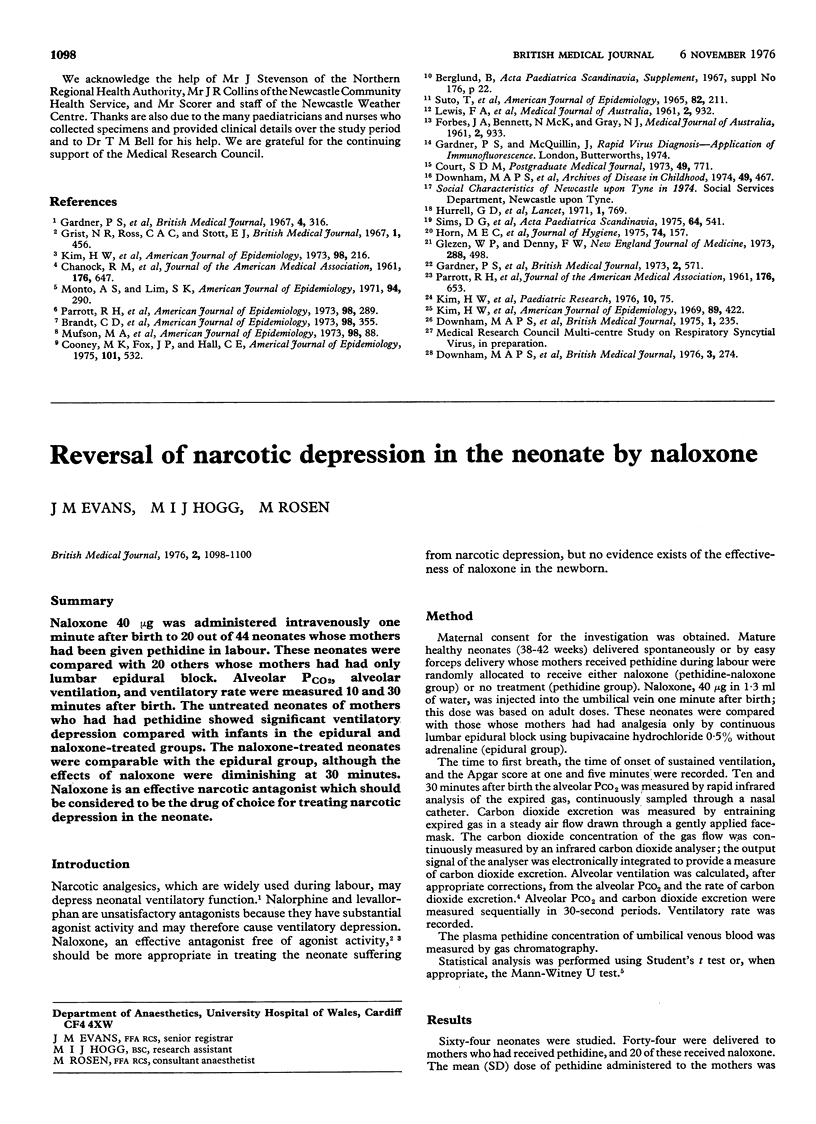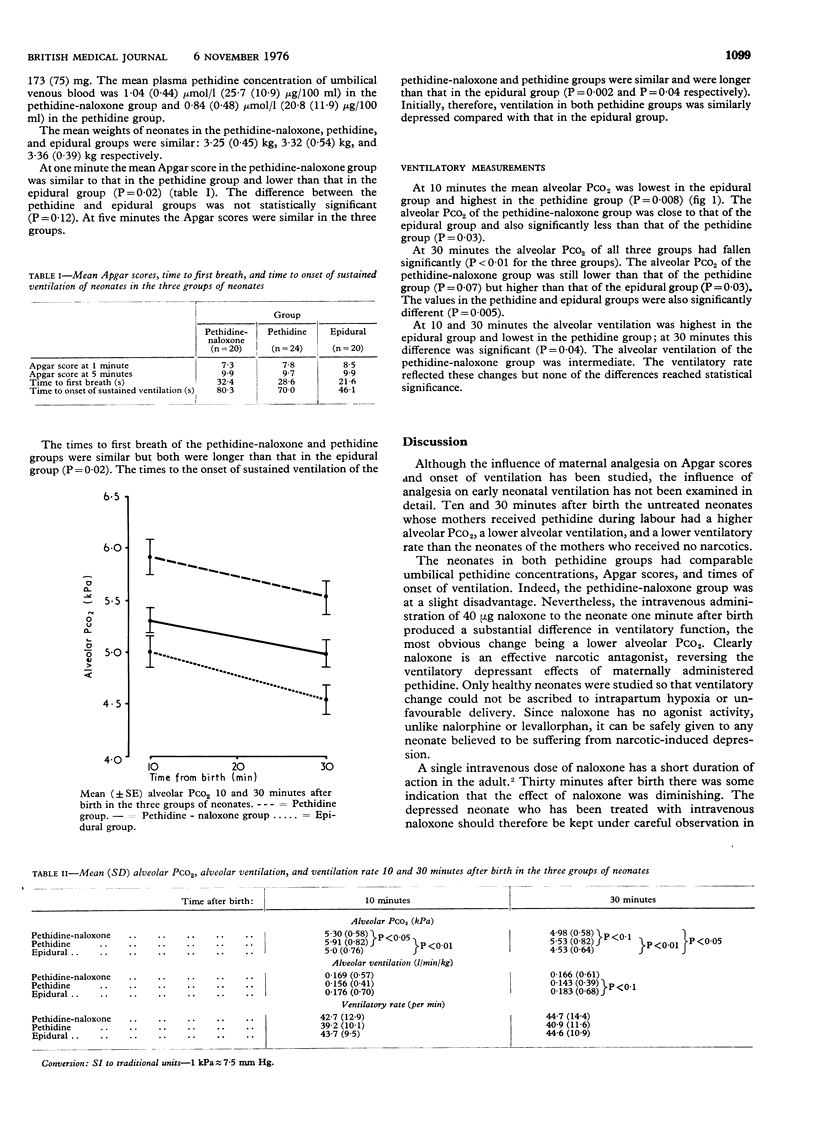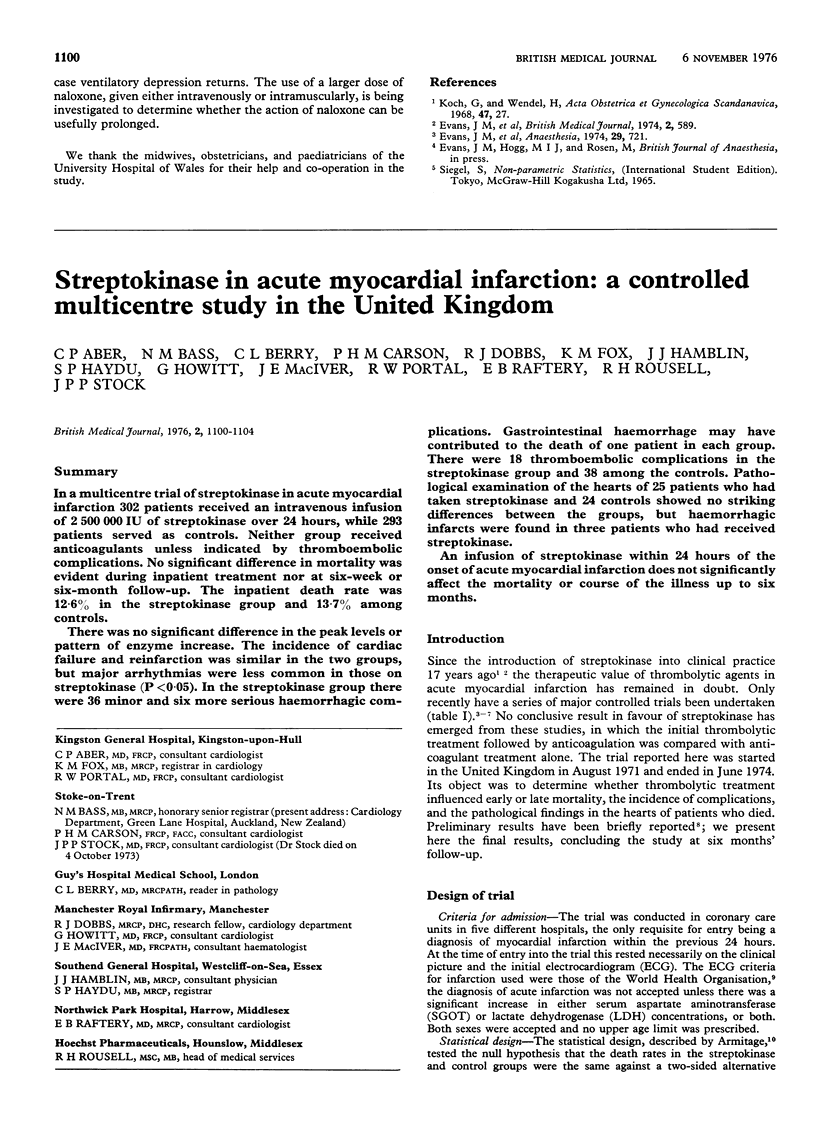Abstract
Naloxone 40 mug was administered intravenously one minute after birth to 20 out of 44 neonates whose mother had been given pethidine in labour. These neonates were compared with 20 others whose mothers had had only lumbar epidural block. Alveolar PCO2, alveolar ventilation, and ventilatory rate were measured 10 and 30 minutes after birth. The untreated neonates of mothers who had had pethidine showed significant ventilatory depression compared with infants in the epidural and naloxone-treated groups. The naloxone-treated neonates were comparable with the epidural group, although the effects of naloxone were diminishing at 30 minutes. Naloxone is an effective narcotic antagonist which should be considered to be the drug of choice for treating narcotic depression in the neonate.
Full text
PDF


Selected References
These references are in PubMed. This may not be the complete list of references from this article.
- Evans J. M., Hogg M. I., Lunn J. N., Rosen M. A comparative study of the narcotic against activity of naloxone and levallorphan. Anaesthesia. 1974 Nov;29(6):721–727. doi: 10.1111/j.1365-2044.1974.tb00759.x. [DOI] [PubMed] [Google Scholar]
- Koch G., Wendel H. The effect of pethidine on the postnatal adjustment of respiration and acid base balance. Acta Obstet Gynecol Scand. 1968;47(1):27–37. doi: 10.3109/00016346809157463. [DOI] [PubMed] [Google Scholar]


